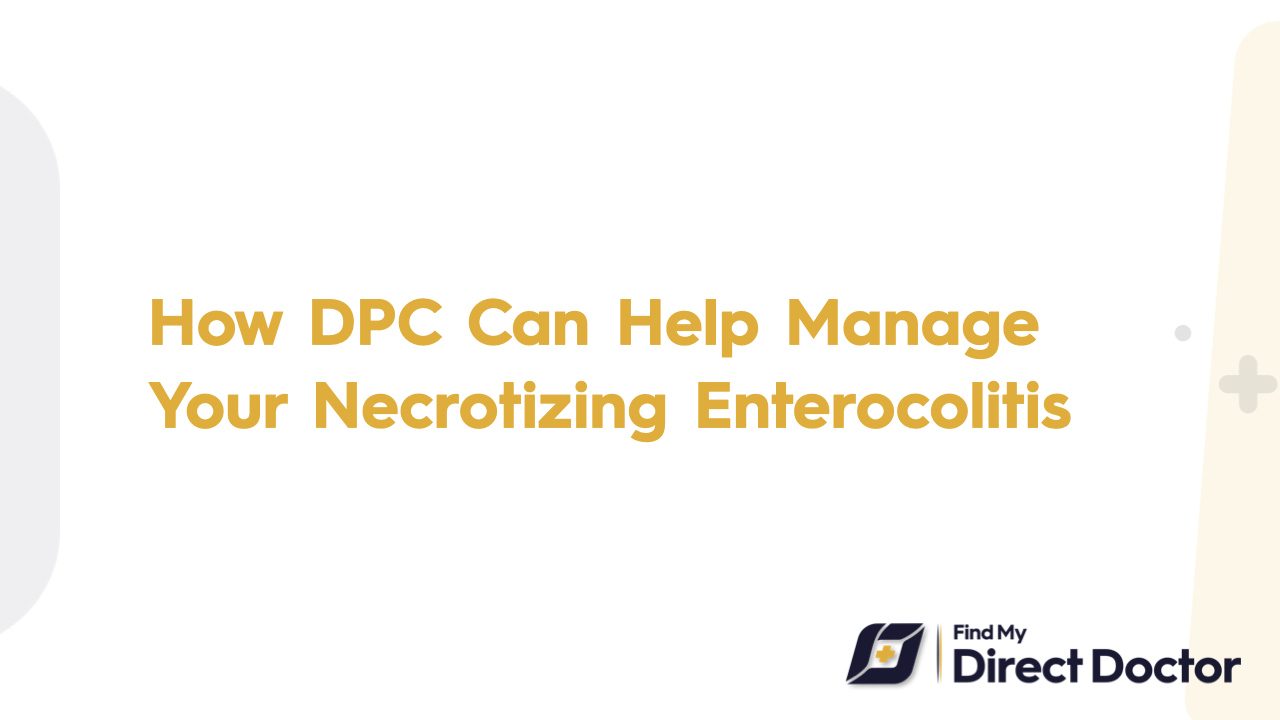



Premature babies are the main victims of necrotizing enterocolitis (NEC), a dangerous gastrointestinal disorder that can also strike full-term babies. It involves intestinal tissue death and inflammation, which can have potentially fatal consequences. Abdominal distention, feeding intolerance, vomiting, lethargy, and blood in the feces are some of the symptoms of NEC. Since the illness can worsen quickly, it is essential to identify it early and treat it right once to avoid serious consequences including intestinal perforation or widespread infection.

Patients, especially those with necrotizing enterocolitis, can receive prompt, thorough care from Direct Primary Care (DPC). Primary care doctors may provide tighter surveillance of infants at risk for NEC in DPC, guaranteeing that symptoms are promptly treated. DPC provides the advantage of early intervention through longer stays and more frequent visits with medical professionals. More cooperation with specialists like pediatric surgeons and neonatologists is also made possible by this strategy, which aids in the patient-centered, comprehensive management of the illness.
The focus on continuity and accessibility of care is one of the main advantages of DPC for the management of necrotizing enterocolitis. In order to ensure quicker reaction times for concerns or symptom changes, parents or caregivers of newborns with NEC can have more direct access to their primary care physician. In order to lower the likelihood of NEC forming or reoccurring, DPC also enables a more proactive approach, allowing physicians to monitor high-risk newborns and direct preventive measures. Treatment decisions are made more quickly and effectively when patient families and clinicians communicate on a frequent basis.
Necrotizing enterocolitis is treated in Direct Primary Care in a way that is highly tailored to the needs of the baby and their family. With DPC, doctors can keep a close eye on the baby's growth and nutritional requirements while offering specialized advice and treatments to either avoid or treat the illness. This covers individualized feeding schedules, early problem detection, and, if required, specialist coordination. By giving each patient more time and attention, DPC helps guarantee that the treatment is specifically tailored to the infant's particular health situation, enhancing results and lowering NEC risks.
Previous Post